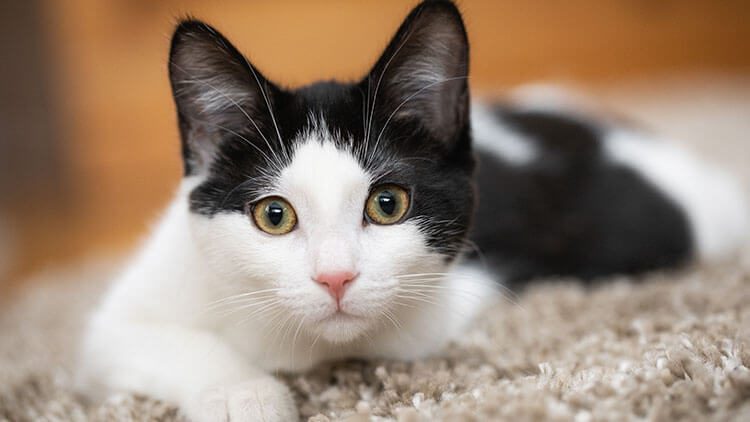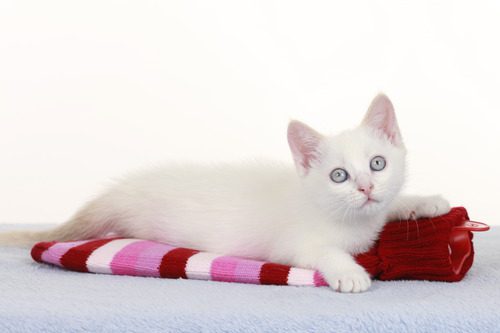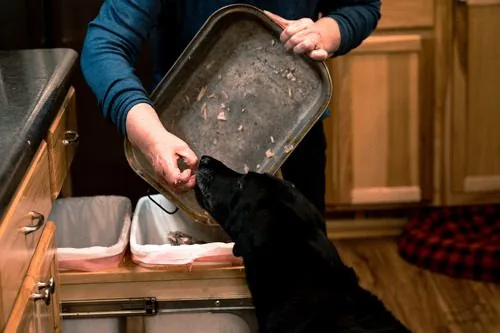Hairballs are nothing new to most cat owners. In fact, usually it is a completely natural and normal occurrence. However, having too many hairballs is not only annoying for cat owners to clean, but it can also cause potentially dangerous blockages. This will leave many cat owners wondering: are cat hairballs something to worry about?
Usually, cat hairballs are nothing for cat owners to worry about, but if your cat seems to be hacking up hairballs excessively you may want to take your cat to the vet about this issue. This is because excessive hairballs can cause blockages that can lead to other more serious problems if left untreated.
In this article we will be explaining everything that cat owners need to know about hairballs. We will also be describing normal hairballs in cats and when you should take your cat to the vet about their hairballs. In addition, we will be giving you some helpful tips on how you can reduce the frequency of your cat’s hairballs.

Are Hairballs Normal in Cats?
Yes, hairballs are a normal occurrence in cats. This is especially true if your cat only hacks up a hairball one to two times a week. Hairballs occur when cats ingest their own hair by mistake when grooming themselves, so the occasional hairball from your cat is to be expected. This is especially true if your cat has long hair, as they may produce more hairballs naturally than shorthair cats.
When Should You be Concerned About Your Cat’s Hairballs?
You should only really be concerned about your cat’s hairballs if they seem to be occurring excessively or if your cat is showing signs of a blockage caused by a hairball. If your cat is hacking up hairballs daily then it may be a sign of a more serious problem. As a result, it is recommended that you take your cat to the veterinarian if they are throwing up hairballs excessively.
What are the Signs of Obstruction?
As we have previously mentioned, a sign of an obstruction from a hairball is another cause for concern. In fact, it is recommended that you take your cat to the vet immediately if you suspect that your cat has any kind of blockage. Some signs of a blockage from a hairball in cats include but may not be limited to:
- Constipation
- Coughing (a dry cough)
- Lethargy
- Dry heaving or retching after meals
How is Obstruction Treated?
If your cat has only been constipated for a short amount of time, then there may be some home remedies that you can try out before rushing your cat to the vet. Increasing your cat’s water and fiber intake and giving them a teaspoon of fish oil with their meals can help. The fish oil helps to lubricate your cat’s colon and the increased fiber and water can help move things along. If you cannot get your cat to drink more water, then switching your cat to a wet food temporarily can help. In addition, canned pumpkin is a great source of healthy fiber.
If these home remedies are not working, then you will need to take your cat to the vet. Here they will be able to take an X-ray to see the obstruction and create a treatment plan from there. In some extreme cases surgery may be needed to remove a hairball that is blocking a cat’s digestive tract, so it is crucial that you get your cat to the vet as soon as possible if they have been constipated for more than a few days. This is especially true if you have tried the above home remedies and they have not worked.
How You Can Reduce Your Cat’s Hairballs
Cats that groom themselves excessively are more likely to have frequent hairballs, especially if they have long hair. Luckily, there are some things that you can do to reduce the frequency of your cat’s hairballs. Doing these things is a good idea if your cat has frequent hairballs because of frequent self-grooming even if they haven’t had an obstruction because of it. Here are some helpful tips on how you can reduce your cat’s hairballs.
Groom Your Cat Regularly
Grooming your cat on a more regular basis can make your cat groom themselves less frequently. This is because they feel cleaner, and their hair may feel less matted as well. Although this tip is great for a cat with any coat, this is especially helpful for our long-haired cats.
Hairball Prevention Diet
In addition to grooming your cat on a regular basis, feeding your cat a hairball-preventing diet can be helpful in cats with frequent hairballs. There are many over the counter hairball-prevention cat foods and supplements out there that make passing hairballs easier on a cat’s digestive system. If you are curious as to which hairball prevention cat food and supplements are the best for your cat, then you should consult with your vet on this topic. They will be able to steer you in the right direction and give you some other helpful tips on reducing your cat’s hairballs as well. In addition, they may be able to prescribe you with a hairball preventing prescribed cat food if some of the over-the-counter ones have not worked.
Other Hairball Over the Counter Products
There are some other over the counter cat hairball prevention products out there. These often include treats and gels that are mostly designed to lubricate your cat’s digestive tract, which makes it easier for hairballs to pass through. This works in a similar way the fish oil remedy mentioned earlier. Of course, if you are still wondering what over the counter hairball prevention products are right for you and your cat then asking your vet can help. They may even be able to prescribe you with something during your visit.
When to See a Vet
Although the occasional hairball from your cat is nothing that you should worry about, there are some instances where cat owners should take their cat to the vet about their hairballs. These instances include:
- Daily hairballs (or even more frequent)
- Frequent or prolonged constipation and signs of a blockage
- If your cat is showing any other worrying symptoms along with their frequent hairballs
Book an appointment at Birch Lake Animal Hospital to talk with a vet about your cat’s hairballs. Call (651) 426-2246 or fill out the online form today!
Recent Posts
About Birch Lake Animal Hospital
The staff at Birch Lake Animal Hospital seeks to provide the best possible medical care for our highly-valued patients and clients.





